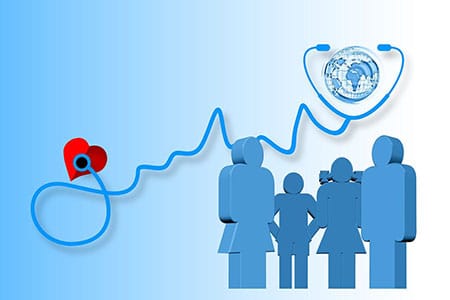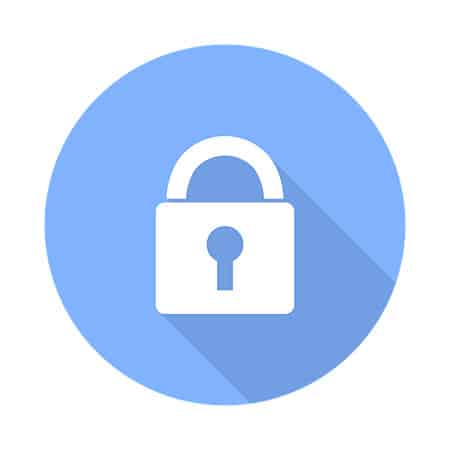Mobile healthcare services is an important aspect of the healthcare industry. It is vital in delivering healthcare to people who, for one reason or another, cannot leave their homes. However, with this mobility comes the critical responsibility of ensuring patient privacy and data security. For healthcare professionals on the go, ensuring HIPAA compliance is of utmost importance to protect sensitive patient information.
The Importance of HIPAA Compliance
The Health Insurance Portability and Accountability Act (HIPAA) sets the standard for protecting sensitive patient data. Healthcare professionals must adhere to strict guidelines to ensure that any personal health information (PHI) remains secure, regardless of whether they are in a traditional medical setting or on the move. Non-compliance can result in hefty fines and damage to a healthcare provider’s reputation. Therefore, safeguarding PHI during transport is a critical component of maintaining HIPAA compliance.
Ensuring HIPAA Compliance in Mobile Healthcare: Challenges, Considerations and Recommendations
Unlike controlled clinical environments, mobile healthcare involves varied settings and potential vulnerabilities that must be addressed to protect patient information effectively. Here are some key challenges and considerations:
Varied and Uncontrolled Environments

Challenges and Considerations
Mobile healthcare services often take place in patients’ homes, community centers, or other non-clinical settings. These environments can lack the physical security controls found in healthcare facilities, increasing the risk of unauthorized access to patient information. Ensuring compliance in such varied environments requires robust protocols and portable security measures.
Recommendations:
- Implement portable security measures, such as lockable bags and portable privacy screens.
- Develop and enforce strict protocols for handling patient information in various settings.
- Conduct regular audits to ensure compliance with these protocols.
Data Access and Sharing
Challenges and Considerations
Healthcare providers in mobile settings need to access and share patient information on the go. This necessitates secure, reliable access to electronic health records (EHRs) and other sensitive data.
Recommendations:
- Use secure VPNs and encrypted communication channels for accessing patient data.
- Employ role-based access controls to ensure only authorized personnel can access sensitive information.
- Utilize mobile device management (MDM) solutions to control and monitor device access.
Device Security

Challenges and Considerations:
Mobile healthcare often relies on portable medical devices and technology. Ensuring the security of these devices is crucial, as they can be lost, stolen, or accessed by unauthorized individuals.
Recommendations:
- Implement strong encryption for data stored on mobile devices.
- Enable remote wipe capabilities to erase data if a device is lost or stolen.
- Schedule regular security updates and patches for all devices.
Connectivity Challenges
Challenges and Considerations:
Mobile healthcare providers frequently operate in areas with limited or unreliable internet connectivity. This can hinder real-time data access and secure communication.
Recommendations:
- Develop offline access protocols with secure local storage that synchronizes once connectivity is restored.
- Use reliable mobile networks and consider investing in mobile hotspots or satellite communication solutions for remote areas.
- Implement redundant communication systems to ensure continuous data security.
Patient Privacy in Non-Clinical Settings

Challenges and Considerations:
Maintaining patient privacy in non-clinical settings can be challenging. Healthcare providers must ensure that consultations and procedures are conducted in a manner that protects patient confidentiality.
Recommendations:
- Train staff on best practices for maintaining privacy in various settings.
- Use portable privacy screens or barriers when conducting consultations in shared or open spaces.
- Encourage the use of secure, private locations for sensitive discussions whenever possible.
Compliance Training for Mobile Staff
Challenges and Considerations:
Mobile healthcare providers must be well-trained in HIPAA regulations and the specific challenges of maintaining compliance outside of traditional settings.
Recommendations:
- Conduct regular training sessions and provide ongoing education on HIPAA compliance.
- Develop specific training modules focused on mobile healthcare scenarios.
- Use real-life examples and case studies to highlight potential risks and mitigation strategies.
Incident Response and Reporting
Challenges and Considerations:
In mobile healthcare, the ability to respond quickly to security incidents is vital. Developing a robust incident response plan that includes procedures for mobile environments can help mitigate the impact of data breaches.
Recommendations:
- Create a comprehensive incident response plan tailored to mobile healthcare settings.
- Train staff on the steps to take in the event of a security breach.
- Establish a clear reporting protocol that ensures timely notification of breaches in compliance with HIPAA requirements.
Integration with Existing Systems
Challenges and Considerations:
Mobile healthcare services must seamlessly integrate with existing healthcare systems to ensure continuity of care and accurate record-keeping.
Recommendations:
- Use secure integration methods, such as API gateways with strong authentication and encryption.
- Ensure that data transfers between mobile platforms and central EHR systems are encrypted and monitored.
- Regularly test the integration processes to identify and address potential security gaps.
Securing Mobile Healthcare with HIPAA Compliance
Ensuring HIPAA compliance in mobile healthcare is a multifaceted challenge that demands a proactive and comprehensive approach. Mobile healthcare professionals play a crucial role in delivering essential care to patients who are unable to visit traditional healthcare facilities, making the need for stringent data protection measures even more critical. By addressing the unique challenges posed by varied and uncontrolled environments, secure data access and sharing, device security, connectivity issues, patient privacy, staff training, incident response, and system integration, healthcare providers can effectively safeguard sensitive patient information.
